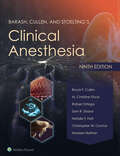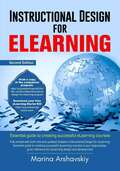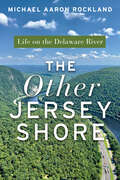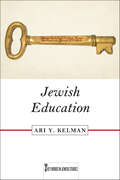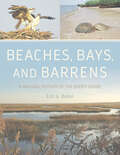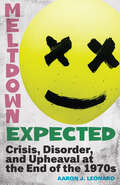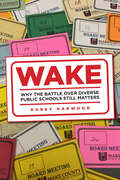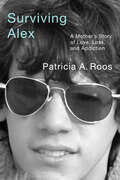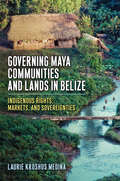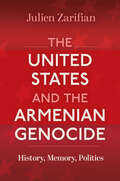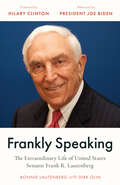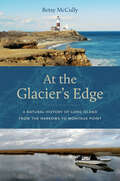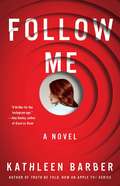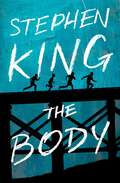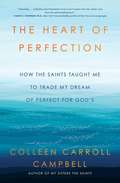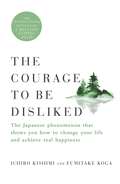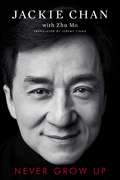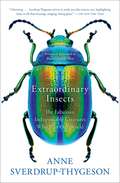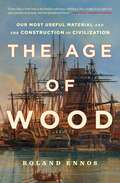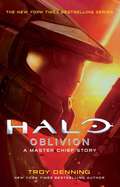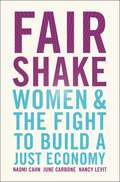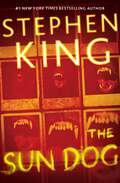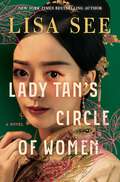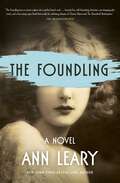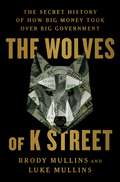- Table View
- List View
Barash, Cullen, and Stoelting's Clinical Anesthesia: eBook without Multimedia
by Bruce F. Cullen M. Christine Stock Rafael Ortega Sam R. Sharar Natalie F. Holt Christopher W. Connor Naveen NathanCovering the full spectrum of clinical issues and options in anesthesiology, Barash, Cullen, and Stoelting’s Clinical Anesthesia, Ninth Edition, edited by Drs. Bruce F. Cullen, M. Christine Stock, Rafael Ortega, Sam R. Sharar, Natalie F. Holt, Christopher W. Connor, and Naveen Nathan, provides insightful coverage of pharmacology, physiology, co-existing diseases, and surgical procedures. This award-winning text delivers state-of-the-art content unparalleled in clarity and depth of coverage that equip you to effectively apply today’s standards of care and make optimal clinical decisions on behalf of your patients.
Instructional Design For Elearning: Essential Guide For Designing Successful Elearning Courses
by Marina ArshavskiyThis Instructional Design for ELearning handbook has been updated with the latest design principles and case studies.Fully revised with both new and updated chapters, Instructional Design for eLearning: Essential Guide for Designing Successful eLearning courses is your step-by-step, go-to reference for eLearning design and development. In this book, Marina Arshavskiy presents all the practical information in one place. This second edition includes even more content, examples, case studies, practice exercises, and assessments. You will also find checklists and templates you can immediately apply to your course design. What’s new:• Technical Training• eLearning copyright information• New chapter about Agile ELearning design and development• New information about personalized and augmented learning approaches• New and up-to-date information about eLearning tools• Assessments after each chapter• New tables and templates• Case studies that illustrate eLearning concepts in each chapter
The Other Jersey Shore: Life on the Delaware River
by Michael Aaron RocklandRiver otters, black bears, and red foxes drink from its clear waters. Prickly pear cacti grow from the red shale cliffs that overlook it, while on the river near Bordentown lies the archeological remnants of a sprawling estate built by the former King of Spain, Napoleon’s brother, who lived there for almost twenty years. You might imagine this magical and majestic waterway is located in some faraway land. But in fact, it’s the backbone and lifeblood of the Garden State: the Delaware River. The Other Jersey Shore takes readers on a personal tour of the New Jersey portion of the Delaware River and its surroundings. You will learn about the role that the river played in human history, including Washington’s four crossings of the Delaware during the Revolutionary War. And you will also learn about the ecological history of the river itself, once one of the most polluted waterways in the country and now one of the cleanest, providing drinking water for 17 million people. Michael Aaron Rockland, a long-time New Jersey resident, shows readers his very favorite spots along the Delaware, including the pristine waterfalls and wilderness in the Delaware Water Gap recreation area. Along the way, he shares engrossing stories and surprising facts about the river that literally defines western New Jersey.
Jewish Education (Key Words in Jewish Studies)
by Ari Y KelmanMost writing about Jewish education has been preoccupied with two questions: What ought to be taught? And what is the best way to teach it? Ari Y Kelman upends these conventional approaches by asking a different question: How do people learn to engage in Jewish life? This book, by centering learning, provides an innovative way of approaching the questions that are central to Jewish education specifically and to religious education more generally. At the heart of Jewish Education is an innovative alphabetical primer of Jewish educational values, qualities, frameworks, catalysts, and technologies which explore the historical ways in which Jewish communities have produced and transmitted knowledge. The book examines the tension between Jewish education and Jewish Studies to argue that shifting the locus of inquiry from “what people ought to know” to “how do people learn” can provide an understanding of Jewish education that both draws on historical precedent and points to the future of Jewish knowledge.
Beaches, Bays, and Barrens: A Natural History of the Jersey Shore
by Eric G. BolenThe Jersey Shore attracts millions of visitors each year, drawn to its sandy beaches. Yet New Jersey’s coastline contains a richer array of biodiverse habitats than most tourists realize, from seagrass meadows to salt marshes to cranberry bogs. Beaches, Bays, and Barrens introduces readers to the natural wonders of the Jersey Shore, revealing its unique ecology and fascinating history. The journey begins with the contributions and discoveries of early naturalists who visited the region and an overview of endangered species and natural history, followed by chapters that explore different facets of the shore’s environments. These start with sandy beaches and dunes and culminate in the engaging Pine Barrens, the vital watershed for much of the state’s varied coastline. Along the way, readers will also learn about whaling, decoy carvers, an extinct duck, and the cultivation of wild blueberries. Including over seventy color photographs, the book also features twenty-three infoboxes that go deep into areas of ecological or historical interest, such as the Forsythe National Wildlife Refuge or the Jaws-like shark attacks of 1916. From Cape May to Sandy Hook, biologist Eric G. Bolen takes you on a guided tour of the Jersey Shore’s rich ecological heritage.
Meltdown Expected: Crisis, Disorder, and Upheaval at the end of the 1970s
by Aaron J. LeonardIn January 1978, President Jimmy Carter proclaimed that “There is all across our land a growing sense of peace and a sense of common purpose.” Yet in the ensuing months, a series of crises disturbed that fragile sense of peace, ultimately setting the stage for Reagan’s decisive victory in 1980 and ushering in the final phase of the Cold War. Meltdown Expected tells the story of the power shifts from late 1978 through 1979 whose repercussions are still being felt. Iran’s revolution led to a hostage crisis while neighbouring Afghanistan became the site of a proxy war between the USSR and the US, who supplied aid to Islamic mujahideen fighters that would later form the Taliban. Meanwhile, as tragedies like the Jonestown mass suicide and the assassination of Harvey Milk captured the nation’s attention, the government quietly reasserted and expanded the FBI’s intelligence powers. Drawing from recently declassified government documents and covering everything from Three Mile Island to the rise of punk rock, Aaron J. Leonard paints a vivid portrait of a tumultuous yet pivotal time in American history.
Wake: Why the Battle over Diverse Public Schools Still Matters (Critical Issues in American Education)
by Karey Alison HarwoodThe Wake County Public School System was once described as a beacon of hope for American school districts. It was both academically successful and successfully integrated. It accomplished these goals through the hard work of teachers and administrators, and through a student assignment policy that made sure no school in the countywide district became a high poverty school. Although most students attended their closest school, the “diversity policy” modified where some students were assigned to make sure no school had more than 40% of its students qualifying for free or reduced-price lunch or more than 25% performing below grade level. When the school board election of 2009 swept into office a majority who favored “neighborhood schools,” the diversity policy that had governed student assignment for years was eliminated. Wake: Why the Battle Over Diverse Public Schools Still Matters tells the story of the aftermath of that election, including the fierce public debate that ensued during school board meetings and in the pages of the local newspaper, and the groundswell of community support that voted in a pro-diversity school board in 2011. What was at stake in those years was the fundamental direction of the largest school district in North Carolina and the 14th largest in the U.S. Would it maintain a commitment to diverse schools, and if so, how would it balance that commitment with various competing interests and demands? Through hundreds of published opinion articles and several in depth interviews with community leaders, Wake examines the substance of that debate and explores the community’s vision for public education. Wake also explores the importance of knowing the history of a place, including the history of school segregation. Wake County’s example still resonates, and the battle over diverse public schools still matters, because owning responsibility for the problem of segregated schools (or not) will shape the direction of America’s future.
Surviving Alex: A Mother’s Story of Love, Loss, and Addiction
by Patricia A. RoosIn 2015, Patricia Roos’s twenty-five-year-old son Alex died of a heroin overdose. Turning her grief into action, Roos, a professor of sociology at Rutgers University, began to research the social factors and institutional failures that contributed to his death. Surviving Alex tells her moving story—and outlines the possibilities of a more compassionate and effective approach to addiction treatment. Weaving together a personal narrative and a sociological perspective, Surviving Alex movingly describes how even children from “good families” fall prey to addiction, and recounts the hellish toll it takes on families. Drawing from interviews with Alex’s friends, family members, therapists, teachers, and police officers—as well as files from his stays in hospitals, rehab facilities, and jails—Roos paints a compelling portrait of a young man whose life veered between happiness, anxiety, success, and despair. And as she explores how a punitive system failed her son, she calls for a community of action that would improve care for substance users and reduce addiction, realigning public health policy to address the overdose crisis.
Governing Maya Communities and Lands in Belize: Indigenous Rights, Markets, and Sovereignties
by Laurie Kroshus MedinaConfronting a debt crisis, the Belizean government has strategized to maximize revenues from lands designated as state property, privatizing lands for cash crop production and granting concessions for timber and oil extraction. Meanwhile, conservation NGOs have lobbied to establish protected areas on these lands to address a global biodiversity crisis. They promoted ecotourism as a market-based mechanism to fund both conservation and debt repayment; ecotourism also became a mechanism for governing lands and people—even state actors themselves—through the market. Mopan and Q’eqchi’ Maya communities, dispossessed of lands and livelihoods through these efforts, pursued claims for Indigenous rights to their traditional lands through Inter-American and Belizean judicial systems. This book examines the interplay of conflicting forms of governance that emerged as these strategies intersected: state performances of sovereignty over lands and people, neoliberal rule through the market, and Indigenous rights-claiming, which challenged both market logics and practices of sovereignty.
The United States and the Armenian Genocide: History, Memory, Politics (Genocide, Political Violence, Human Rights)
by Julien ZarifianDuring the first World War, over a million Armenians were killed as Ottoman Turks embarked on a bloody campaign of ethnic cleansing. Scholars have long described these massacres as genocide, one of Hitler’s prime inspirations for the Holocaust, yet the United States did not officially recognize the Armenian Genocide until 2021. This is the first book to examine how and why the United States refused to acknowledge the Armenian Genocide until the early 2020s. Although the American government expressed sympathy towards the plight of the Armenians in the 1910s and 1920s, historian Julien Zarifian explores how, from the 1960s, a set of geopolitical and institutional factors soon led the United States to adopt a policy of genocide non-recognition which it would cling to for over fifty years, through Republican and Democratic administrations alike. He describes the forces on each side of this issue: activists from the US Armenian diaspora and their allies, challenging Cold War statesmen worried about alienating NATO ally Turkey and dealing with a widespread American reluctance to directly confront the horrors of the past. Drawing from congressional records, rare newspapers, and interviews with lobbyists and decision-makers, he reveals how genocide recognition became such a complex, politically sensitive issue.
Frankly Speaking: The Extraordinary Life of United States Senator Frank R. Lautenberg
by Bonnie LautenbergFrank Lautenberg was the embodiment of the American dream. The son of Eastern European immigrants who toiled in the factories of northern New Jersey, he rose to become a Fortune 500 CEO and eventually a five-term US senator. Yet his is not a simple rags-to-riches tale, but is rather the story of someone who used his newfound affluence and influence to improve the lives of ordinary Americans. Told by one of the people who knew him best, his widow Bonnie, Frankly Speaking reveals the political strategies that made Lautenberg one of the Senate’s most powerful advocates for the health and safety of America’s citizens. He championed seemingly minor, unglamorous reforms that made a big difference to everyday lives, from raising the national drinking age to preventing domestic abusers from purchasing guns. These campaigns earned him powerful enemies in the alcohol, tobacco, and firearms industries, and he was subjected to some of the most brutal campaign mudslinging in American history. Yet, as this inspiring biography reveals, New Jersey’s longest-serving senator was not afraid to take big political risks if it meant standing up for his principles, whether that meant opposing the Iraq War or protecting LGBTQ and women’s rights.
At the Glacier’s Edge: A Natural History of Long Island from the Narrows to Montauk Point
by Betsy McCullyVast salt marshes, ancient grasslands, lush forests, pristine beaches and dunes, and copious inland waters, all surrounded by a teeming sea. These are probably not the first things you imagine when you think of Long Island, but just beyond its highways and housing developments lies a stunning landscape full of diverse plant and animal life. Combining science writing, environmental history, and first-hand accounts from a longtime resident, At the Glacier’s Edge offers a unique narrative natural history of Long Island. Betsy McCully tells the story of how the island was formed at the end of the last ice age, how its habitats evolved, and how humans in the last few hundred years have radically altered and degraded its landscape. Yet as she personally recounts the habitat losses and species declines she has witnessed over the past few decades, she describes the vital efforts that environmental activists are making to restore and reclaim this land—from replanting salt marshes, to preserving remaining grasslands and forests, to cleaning up the waters. At the Glacier’s Edge provides an in-depth look at the flora, fauna and geology that make Long Island so special.
Follow Me
by Kathleen BarberFrom the author of Truth Be Told (formerly titled Are You Sleeping)—now an Apple TV+ series of the same name—comes &“a thriller for the Instagram age&” (Amy Gentry, author of Good as Gone) for fans of Jessica Knoll and Caroline Kepnes.Everyone wants new followers…until they follow you home. Audrey Miller has an enviable new job at the Smithsonian, a body by Pilates, an apartment door with a broken lock, and hundreds of thousands of Instagram followers to bear witness to it all. Having just moved to Washington, DC, Audrey busies herself with impressing her new boss, interacting with her online fan base, and staving off a creepy upstairs neighbor with the help of the only two people she knows in town: an ex-boyfriend she can&’t stay away from, and a sorority sister with a high-powered job and a mysterious past. But Audrey&’s faulty door may be the least of her security concerns. Unbeknownst to her, her move has brought her within striking distance of someone who has obsessively followed her social media presence for years—from her first WordPress blog to her most recent Instagram Story. No longer content to simply follow her carefully curated life from a distance, he consults the dark web for advice on how to make Audrey his and his alone. In his quest to win her heart, nothing is off-limits—and nothing is private. Kathleen Barber&’s new novel of suspense, hailed as &“gripping, chilling&” by Robyn Harding, author of The Perfect Family, is an electrifying new thriller that will have you scrambling to cover your webcam and digital footprints.
The Body: Different Seasons (Penguin Readers #Level 5)
by Stephen KingSet in the fictional town of Castle Rock, Maine #1 New York Times bestselling author Stephen King&’s timeless novella &“The Body&”—originally published in his 1982 short story collection Different Seasons, and adapted into the 1986 film classic Stand by Me—is now available as a stand-alone publication.It&’s 1960 in the fictional town of Castle Rock, Maine. Ray Brower, a boy from a nearby town, has disappeared, and twelve-year-old Gordie Lachance and his three friends set out on a quest to find his body along the railroad tracks. During the course of their journey, Gordie, Chris Chambers, Teddy Duchamp, and Vern Tessio come to terms with death and the harsh truths of growing up in a small factory town that doesn&’t offer much in the way of a future. A timeless exploration of the loneliness and isolation of young adulthood, Stephen King&’s The Body is an iconic, unforgettable, coming-of-age story.
The Heart of Perfection: How the Saints Taught Me to Trade My Dream of Perfect for God's
by Colleen Carroll CampbellWinner of the 2020 Catholic Press Association Book Award In a book hailed as &“liberating&” (Gary Chapman, New York Times bestselling author), an award-winning author and mother of four weaves her own stories and struggles with those of seven ex-perfectionist saints (and one heretic) who show us how to pursue a new kind of perfection: freedom in Christ. Spiritual perfectionism—an obsession with flawlessness rooted in the belief that we can earn God&’s love—is dangerous because so many of us mistake it for virtue. Its toxic cycle of pride, sin, shame, blame, and despair distorts our vision, dulls our faith, and leads us to view others through the same hypercritical lens we think God is using to view us. As a lifelong overachiever who drafted her first résumé in sixth grade and spell-checked her high school boyfriend&’s love letters, Colleen Carroll Campbell knows something about the perfectionist trap. But it was only after she became a mother that she started to see how insidiously perfectionism had infected her spiritual life, how lethal it could be to her happiness and her family, and how disproportionately it afflicts the people working hardest to serve God. In the ruins of her own mistakes, Colleen dug into Scripture and the lives of the canonized saints for answers. She discovered to her surprise that many holy men and women were, in fact, recovering perfectionists. And their grace-fueled victory oer this malady—not perfectionist striving—was the key to their heroic virtue and contagious joy. In The Heart of Perfection, Colleen weaves the stories and wisdom of seven ex-perfectionist saints (and one heretic) with Scripture and beautifully crafted tales of her own trial-and-error experiments in applying that wisdom to her life. Gorgeously written and deeply insightful, Colleen Carroll Campbell&’s The Heart of Perfection is a &“must-read&” (Jeannie Gaffigan, executive producer of The Jim Gaffigan Show) that &“gives us permission to…walk in the freedom of God&’s unconditional love&” (Jennifer Fulwiler, author of One Beautiful Dream). For a free Heart of Perfection reading guide for book clubs, visit Colleen-Campbell.com.
The Courage to Be Disliked: The Japanese Phenomenon That Shows You How to Change Your Life and Achieve Real Happiness
by Ichiro Kishimi Fumitake KogaThe Life-Changing Magic of Tidying Up for the mind, The Courage to Be Disliked is the Japanese phenomenon that shows you how to free yourself from the shackles of past experiences and others&’ expectations to achieve real happiness.The Courage to Be Disliked, already an enormous bestseller in Asia with more than 3.5 million copies sold, demonstrates how to unlock the power within yourself to be the person you truly want to be. Using the theories of Alfred Adler, one of the three giants of twentieth century psychology, this book follows an illuminating conversation between a philosopher and a young man. The philosopher explains to his pupil how each of us is able to determine our own life, free from the shackles of past experiences, doubts, and the expectations of others. It&’s a way of thinking that is deeply liberating, allowing us to develop the courage to change, and to ignore the limitations that we and those around us have placed on ourselves. The result is a book that is both highly accessible and profound in its importance. Millions have already read and benefitted from its wisdom. This is a truly special book in the vein of Marie Kondo&’s The Life-Changing Magic of Tidying Up but for the mind. Those ready to embrace the insights and liberation promised by The Courage to Be Disliked will come to a deeper understanding of themselves and others, and find the inspiration to take the reins of their own life.
Never Grow Up
by Jackie ChanA candid, thrilling memoir from one of the most recognizable, influential, and beloved cinematic personalities in the world.Everyone knows Jackie Chan. Whether it&’s from Rush Hour, Shanghai Noon, The Karate Kid, or Kung Fu Panda, Jackie is admired by generations of moviegoers for his acrobatic fighting style, comic timing, and mind-bending stunts. In 2016—after fifty-six years in the industry, over 200 films, and many broken bones—he received an honorary Academy Award for his lifetime achievement in film. But at 64 years-old, Jackie is just getting started. Now, in Never Grow Up, the global superstar reflects on his early life, including his childhood years at the China Drama Academy (in which he was enrolled at the age of six), his big breaks (and setbacks) in Hong Kong and Hollywood, his numerous brushes with death (both on and off film sets), and his life as a husband and father (which has been, admittedly and regrettably, imperfect). Jackie has never shied away from his mistakes. Since The Young Master in 1980, Jackie&’s films have ended with a bloopers reel in which he stumbles over his lines, misses his mark, or crashes to the ground in a stunt gone south. In Never Grow Up, Jackie applies the same spirit of openness to his life, proving time and time again why he&’s beloved the world over: he&’s honest, funny, kind, brave beyond reckoning and—after all this time—still young at heart.
Extraordinary Insects: The Fabulous, Indispensable Creatures Who Run Our World
by Anne Sverdrup-ThygesonThis enthusiastic, witty, and informative introduction to the world of insects and why we could not survive without them is &“a joy&” (The Times, London) and &“charming...Highlighting them in all their buzzing, stinging, biting glory&” (The New York Times Book Review). Insects comprise roughly half of the animal kingdom. They live everywhere—deep inside caves, 18,000 feet high in the Himalayas, inside computers, in Yellowstone&’s hot springs, and in the ears and nostrils of much larger creatures. There are insects that have ears on their knees, eyes on their penises, and tongues under their feet. Most of us think life would be better without bugs. In fact, life would be impossible without them. Most of us know that we would not have honey without honeybees, but without the pinhead-sized chocolate midge, cocoa flowers would not pollinate. No cocoa, no chocolate. The ink that was used to write the Declaration of Independence was derived from galls on oak trees, which are induced by a small wasp. The fruit fly was essential to medical and biological research experiments that resulted in six Nobel prizes. Blowfly larva can clean difficult wounds; flour beetle larva can digest plastic; several species of insects have been essential to the development of antibiotics. Insects turn dead plants and animals into soil. They pollinate flowers, including crops that we depend on. They provide food for other animals, such as birds and bats. They control organisms that are harmful to humans. Life as we know it depends on these small creatures. &“Delivering a hail of facts with brio and precision&” (Nature) Anne Sverdrup-Thygeson shows us that there is more variety among insects than we thought possible and the more you learn about insects, the more fascinating they become. Extraordinary Insects is &“a very enthusiastic look at the flying, crawling, stinging bug universe world, and why we should cherish it&” (The Philadelphia Inquirer). **Note: This book was previously published under the title Buzz, Sting, Bite.
The Age of Wood: Our Most Useful Material and the Construction of Civilization
by Roland EnnosA &“smart and surprising&” (Booklist) &“expansive history&” (Publishers Weekly) detailing the role that wood and trees have played in our global ecosystem—including human evolution and the rise and fall of empires—in the bestselling tradition of Yuval Harari&’s Sapiens and Mark Kurlansky&’s Salt.As the dominant species on Earth, humans have made astonishing progress since our ancestors came down from the trees. But how did the descendants of small primates manage to walk upright, become top predators, and populate the world? How were humans able to develop civilizations and produce a globalized economy? Now, in The Age of Wood, Roland Ennos shows for the first time that the key to our success has been our relationship with wood. &“A lively history of biology, mechanics, and culture that stretches back 60 million years&” (Nature) The Age of Wood reinterprets human history and shows how our ability to exploit wood&’s unique properties has profoundly shaped our bodies and minds, societies, and lives. Ennos takes us on a sweeping journey from Southeast Asia and West Africa where great apes swing among the trees, build nests, and fashion tools; to East Africa where hunter gatherers collected their food; to the structural design of wooden temples in China and Japan; and to Northern England, where archaeologists trace how coal enabled humans to build an industrial world. Addressing the effects of industrialization—including the use of fossil fuels and other energy-intensive materials to replace timber—The Age of Wood not only shows the essential role that trees play in the history and evolution of human existence, but also argues that for the benefit of our planet we must return to more traditional ways of growing, using, and understanding trees. A brilliant blend of recent research and existing scientific knowledge, this is an &“excellent, thorough history in an age of our increasingly fraught relationships with natural resources&” (Kirkus Reviews, starred review).
Halo: A Master Chief Story (Halo #26)
by Troy DenningA Master Chief story and original full-length novel set in the Halo universe—based on the New York Times bestselling video game series!2526. It has been more than a year since humanity first encountered the hostile military alliance of alien races known as the Covenant, and several weeks after the United Nations Space Command&’s devastating counterattack of Operation: SILENT STORM was deemed an overwhelming success. The UNSC has put its faith in the hands of the Spartans, led by the legendary Master Chief, John-117: enhanced super-soldiers raised and trained from childhood via a clandestine black ops project to be living weapons. But the Covenant—enraged and fearful of their enemy&’s unexpected strategies and prowess—is not taking its recent defeat lightly, and is now fully determined to eradicate humanity from existence, brutally overrunning the ill-fated planets of the Outer Colonies faster than retreats can be ordered. If the UNSC has any chance of stemming the tide of the war, the Master Chief and Blue Team must drop onto an empty, hellish world in order to capture a disabled Covenant frigate filled with valuable technology. It has all the makings of a trap, but the bait is far too tempting to ignore—and this tantalizing prize is being offered by a disgraced and vengeful Covenant fleetmaster, whose sole opportunity for redemption lies in extinguishing humanity&’s only hope of survival…
Fair Shake: Women and the Fight to Build a Just Economy
by Naomi Cahn June Carbone Nancy LevitA stirring, comprehensive look at the state of women in the workforce—why women&’s progress has stalled, how our economy fosters unproductive competition, and how we can fix the system that holds women back.In an era of supposed great equality, women are still falling behind in the workplace. Even with more women in the workforce than in decades past, wage gaps continue to increase. It is the most educated women who have fallen the furthest behind. Blue-collar women hold the most insecure and badly paid jobs in our economy. And even as we celebrate high-profile representation—women on the board of Fortune 500 companies and our first female vice president—women have limited recourse when they experience harassment and discrimination. Fair Shake: Women and the Fight to Build a Just Economy explains that the system that governs our economy—a winner-take-all economy—is the root cause of these myriad problems. The WTA economy self-selects for aggressive, cutthroat business tactics, which creates a feedback loop that sidelines women. The authors, three legal scholars, call this feedback loop &“the triple bind&”: if women don&’t compete on the same terms as men, they lose; if women do compete on the same terms as men, they&’re punished more harshly for their sharp elbows or actual misdeeds; and when women see that they can&’t win on the same terms as men, they take themselves out of the game (if they haven&’t been pushed out already). With odds like these stacked against them, it&’s no wonder women feel like, no matter how hard they work, they can&’t get ahead. Fair Shake is not a &“fix the woman&” book; it&’s a &“fix the system&” book. It not only diagnoses the problem of what's wrong with the modern economy, but shows how, with awareness and collective action, we can build a truly just economy for all.
The Sun Dog: The Sun Dog (Bride Series)
by Stephen King#1 New York Times bestselling author Stephen King&’s novella The Sun Dog, published in his award-winning 1990 story collection Four Past Midnight, now available for the first time as a standalone publication.The dog is loose again. It is not sleeping. It is not lazy. It&’s coming for you. Kevin Delavan wants only one thing for his fifteenth birthday: a Polaroid Sun 660. There&’s something wrong with his gift, though. No matter where Kevin Delevan aims the camera, it produces a photograph of an enormous, vicious dog. In each successive picture, the menacing creature draws nearer to the flat surface of the Polaroid film as if it intends to break through. When old Pop Merrill, the town&’s sharpest trader, gets wind of this phenomenon, he envisions a way to profit from it. But the Sun Dog, a beast that shouldn&’t exist at all, turns out to be a very dangerous investment.
Lady Tan's Circle of Women: A Novel
by Lisa See*NEW YORK TIMES BESTSELLER!* From &“one of those special writers capable of delivering both poetry and plot&” (The New York Times Book Review) an immersive historical novel inspired by the true story of a woman physician in 15th-century China—perfect for fans of Lisa See&’s classics Snow Flower and the Secret Fan and Tea Girl of Hummingbird Lane.According to Confucius, &“an educated woman is a worthless woman,&” but Tan Yunxian—born into an elite family, yet haunted by death, separations, and loneliness—is being raised by her grandparents to be of use. Her grandmother is one of only a handful of female doctors in China, and she teaches Yunxian the pillars of Chinese medicine, the Four Examinations—looking, listening, touching, and asking—something a man can never do with a female patient. From a young age, Yunxian learns about women&’s illnesses, many of which relate to childbearing, alongside a young midwife-in-training, Meiling. The two girls find fast friendship and a mutual purpose—despite the prohibition that a doctor should never touch blood while a midwife comes in frequent contact with it—and they vow to be forever friends, sharing in each other&’s joys and struggles. No mud, no lotus, they tell themselves: from adversity beauty can bloom. But when Yunxian is sent into an arranged marriage, her mother-in-law forbids her from seeing Meiling and from helping the women and girls in the household. Yunxian is to act like a proper wife—embroider bound-foot slippers, recite poetry, give birth to sons, and stay forever within the walls of the family compound, the Garden of Fragrant Delights. How might a woman like Yunxian break free of these traditions and lead a life of such importance that many of her remedies are still used five centuries later? How might the power of friendship support or complicate these efforts? A captivating story of women helping each other, Lady Tan&’s Circle of Women is a triumphant reimagining of the life of one person who was remarkable in the Ming dynasty and would be considered remarkable today.
The Foundling: A Novel
by Ann LearyFrom the New York Times bestselling author of The Good House, the &“harrowing, gripping, and beautiful&” (Laura Dave, New York Times bestselling author) story of two friends, raised in the same orphanage, whose loyalty is put to the ultimate test when they meet years later at an institution—based on a shocking and little-known piece of American history.It&’s 1927 and eighteen-year-old Mary Engle is hired to work as a secretary at a remote but scenic institution for mentally disabled women called the Nettleton State Village for Feebleminded Women of Childbearing Age. She&’s immediately in awe of her employer—brilliant, genteel Dr. Agnes Vogel. Dr. Vogel had been the only woman in her class in medical school. As a young psychiatrist she was an outspoken crusader for women&’s suffrage. Now, at age forty, Dr. Vogel runs one of the largest and most self-sufficient public asylums for women in the country. Mary deeply admires how dedicated the doctor is to the poor and vulnerable women under her care. Soon after she&’s hired, Mary learns that a girl from her childhood orphanage is one of the inmates. Mary remembers Lillian as a beautiful free spirit with a sometimes-tempestuous side. Could she be mentally disabled? When Lillian begs Mary to help her escape, alleging the asylum is not what it seems, Mary is faced with a terrible choice. Should she trust her troubled friend with whom she shares a dark childhood secret? Mary&’s decision triggers a hair-raising sequence of events with life-altering consequences for all. Inspired by a true story about the author&’s grandmother, The Foundling is compelling, unsettling, and &“a stunning reminder that not much time has passed since everyone claimed to know what was best for a woman—everyone except the woman herself&” (Jodi Picoult, New York Times bestselling author).
The Wolves of K Street: The Secret History of How Big Money Took Over Big Government
by Brody Mullins Luke MullinsTwo veteran investigative journalists trace the rise of the modern lobbying industry through the three dynasties—one Republican, two Democratic—that have enabled corporate interests to infiltrate American politics and undermine our democracy.On K Street, a few blocks from the White House, you&’ll find the offices of the most powerful men in Washington. In the 1970s, the city&’s center of gravity began to shift away from elected officials in big marble buildings to a handful of savvy, handsomely paid operators who didn&’t answer to any fixed constituency. The cigar-chomping son of a powerful Congressman, an illustrious political fixer with a weakness for modern art, a Watergate-era dirty trickster, the city&’s favorite cocktail party host…these were the sorts of men who now ran Washington. Over four decades, they&’d chart new ways to turn their clients&’ cash into political leverage, abandoning favor-trading in smoke-filled rooms for increasingly sophisticated tactics like &“shadow lobbying,&” where underground campaigns sparked seemingly organic public outcries to pressure lawmakers into taking actions that would ultimately benefit corporate interests rather than the common good. With billions of dollars at play, these lobbying dynasties enshrined in Washington a pro-business consensus that would guide the country&’s political leaders—Democrats and Republicans alike—allowing companies to flourish even as ordinary Americans buckled under the weight of stagnant wages, astronomical drug prices, unsafe home loans, and digital monopolies. A good lobbyist could kill even a piece of legislation supported by the president, both houses of Congress, and a majority of Americans. Yet, nothing lasts forever. Amidst a populist backlash to the soaring inequality these lobbyists helped usher in, Washington&’s pro-business alliance suddenly began to unravel. And while new ways for corporations to control the federal government would emerge, the men who&’d once built K Street found themselves under legal scrutiny and on the verge of financial collapse. One had his namesake firm ripped away by his own colleagues. Another watched his business shut down altogether. One went to prison. And one was found dead behind the 18th green of an exclusive golf club, with a bottle of $1,500 wine at his feet and a bullet in his head. A dazzling and infuriating portrait of fifty years of corporate influence in Washington, The Wolves of K Street is a masterpiece of narrative nonfiction—irresistibly dramatic, spectacularly timely, explosive in its revelations, and absolutely impossible to put down.
